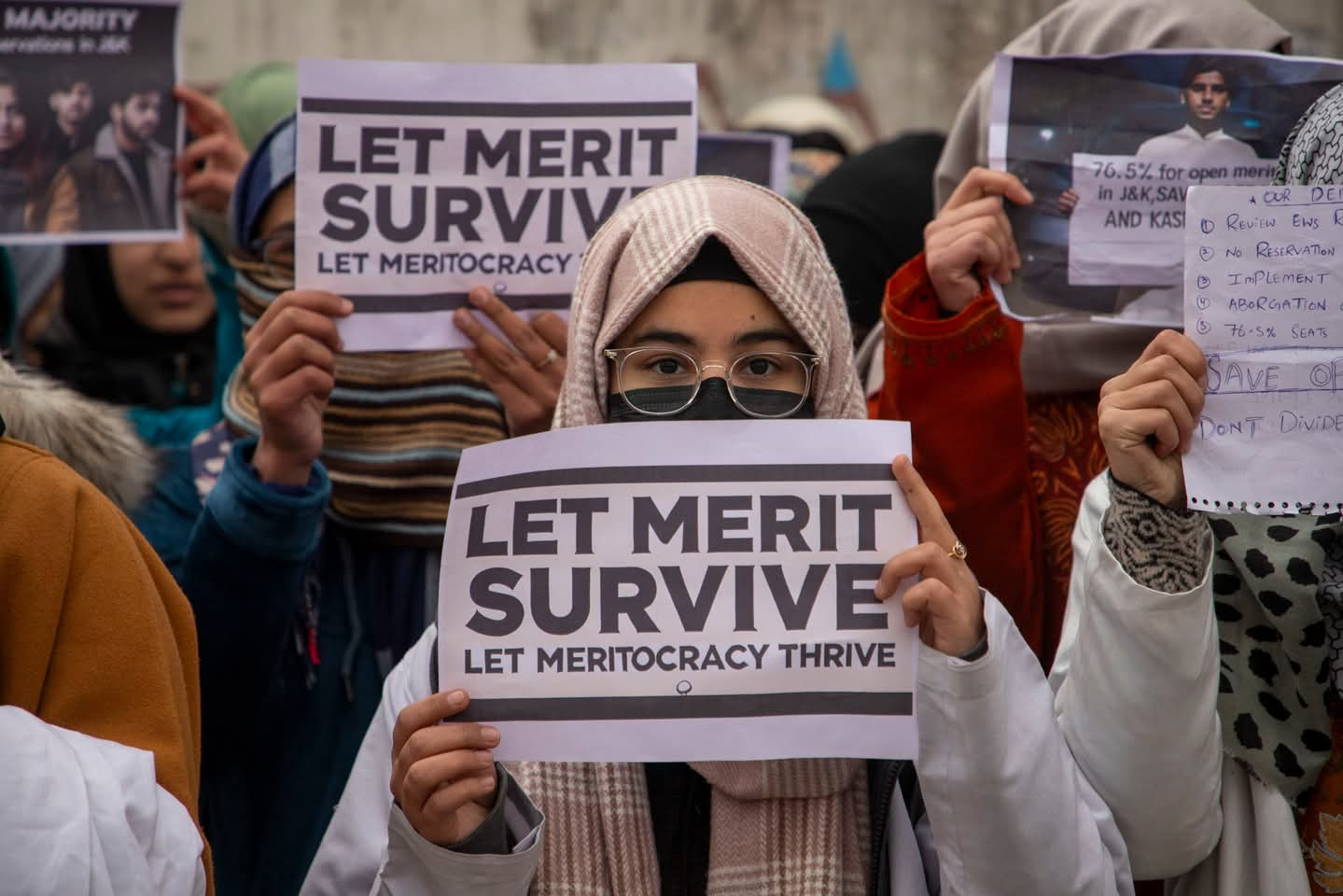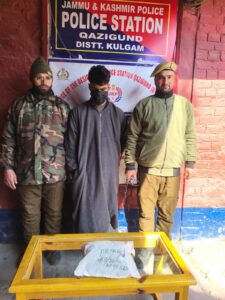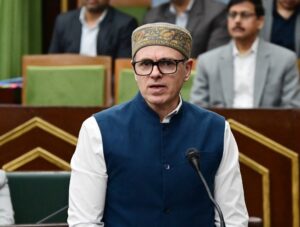J&K Students Association Voices Strong Discontent Over Government’s Uncertainty on Reservation Policy, Calls for Official Clarity

Demands Inclusive Sub-Committee to Tackle Reservation Concerns
Requests Suspension of Recruitments Until Review is Finalized
The Jammu and Kashmir Students Association has expressed significant dissatisfaction with the government’s lack of clarity and transparency surrounding the contentious reservation policy. This response follows a meeting between a five-member student delegation and Chief Minister Omar Abdullah, who indicated that a cabinet sub-committee would complete its review within six months. However, the association finds this assurance inadequate and lacking in immediate relevance.
National Convenor Nasir Khuehami commented, “Despite two days passing since our meeting with the Chief Minister, there has been no official record of the meeting or any statement from the government regarding the commitments made. This absence of communication demonstrates a serious lack of clarity and commitment from the government on a crucial issue. Discussions with various student groups and stakeholders reveal widespread dissatisfaction, as they feel the government is not genuinely addressing their concerns.”
The association insists that the government should promptly issue an official statement detailing the Chief Minister’s commitments, particularly the promise to resolve the reservation issue within six months. “Students deserve transparency. The government must clarify its position and hold itself accountable for the commitments made during our discussions,” they stated.
Khuehami further emphasized, “There will be no further discussions with the government until the sub-committee is properly structured. We demand that the committee be inclusive and structured similarly to Parliament’s Joint Parliamentary Committees (JPC), which incorporate members from both the Lok Sabha and Rajya Sabha, along with government and opposition representatives. The current composition of the sub-committee is fundamentally flawed, as two of its members belong to the reserved category. Open merit students cannot expect fair treatment from a committee that is inherently biased.”
He added, “If the government is genuinely committed to resolving this issue, it must ensure that the process is fair, streamlined, and inclusive. The sub-committee should represent all stakeholders, including students, aspirants, retired judges, and independent voices, to foster trust in its ability to produce equitable and just recommendations.”
The association reiterated its call for an immediate suspension of all ongoing recruitments under the disputed policy until the review is finalized. They argued that the review process should be expedited and completed within three months, as waiting six months for a resolution is excessive.
The association questioned the Chief Minister’s promise of mass recruitment soon after the government was formed, wondering if students would now have to endure a six-month wait while mass recruitments are conducted under the current reservation policy. “This would constitute a profound injustice. The government must ensure that no recruitments occur under the existing reservation policy until a fair and transparent system is established. Delays could exacerbate frustration and erode trust within the student community,” they stressed.
Concerns were also raised about the lack of assurance that the committee’s report would ultimately benefit students or yield meaningful reforms. The government has not guaranteed that the report will address student grievances or simply maintain the status quo, which contributes to growing frustration and mistrust among affected communities.
Khuehami criticized the contradictory statements from leaders and ministers of the ruling National Conference. While the Chief Minister assured a review, Minister Javid Rana firmly stated that “nobody can touch ST-1 and ST-2,” implying resistance to any potential changes. In contrast, Education Minister Sakina Yatoo declined to comment, citing the matter as sub-judice.
“Evading questions about reservations under the guise of a sub-judice matter is unjust. The Supreme Court, in the case of Amit Sahni vs. Commissioner of Police & Ors. (2020), affirmed that the sub-judice status does not preclude the right to protest or engage in democratic discourse,” he noted.
Ummar Jamal, President of the Association, criticized these inconsistencies, describing them as indicative of the government’s disjointed approach. “Attempts to stifle discussions under the pretense of judicial processes not only undermine democratic values but also cast doubt on the government’s commitment to public interest and fair governance.”
“This lack of coherence and communication reflects poorly on the government’s dedication to resolving the issue. The government must urgently issue an official statement, suspend ongoing recruitments, and ensure the sub-committee is more inclusive and impartial,” he asserted.
Jamal added that ongoing delays, ambiguity, and lack of transparency could further distress students and the wider public. “The youth of Jammu and Kashmir are demanding decisive action, not empty promises. The government must take immediate action,” he concluded.





